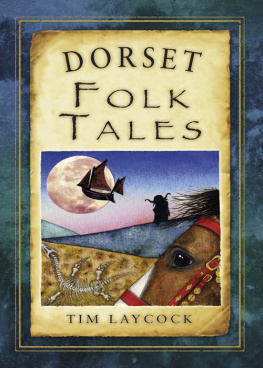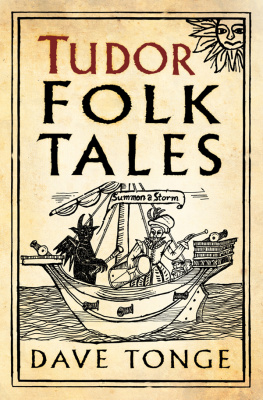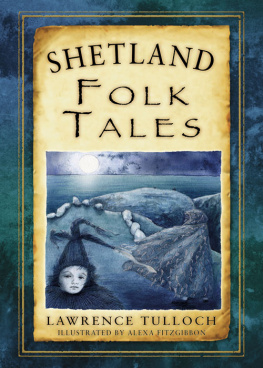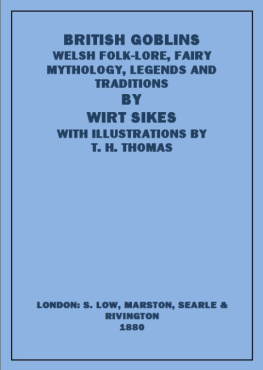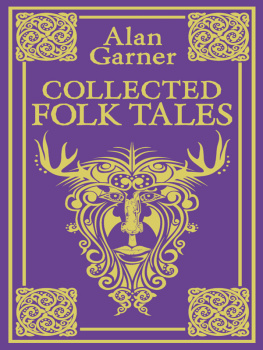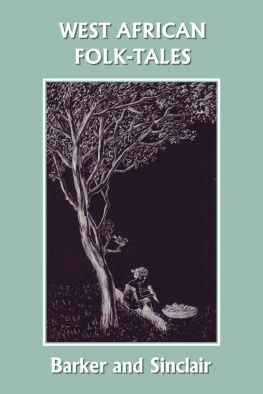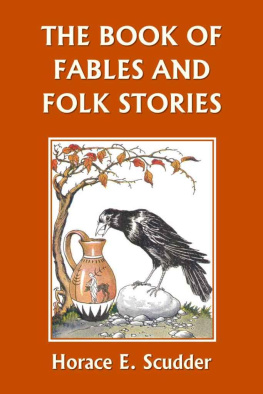
The Folk-Lore Society,
FOR COLLECTING AND PRINTING
RELICS OF POPULAR ANTIQUITIES, &c.
ESTABLISHED IN
THE YEAR MDCCCLXXVIII.
Alter et Idem.
PUBLICATIONS
OF
THE FOLK-LORE SOCIETY.
XIII. (1886).
List of Officers of the Society,
1888-1889.
PRESIDENT.
ANDREW LANG, ESQ., M.A.
VICE-PRESIDENTS.
W. R. S. RALSTON, M.A.
THE RIGHT HON. THE EARL OF STRAFFORD.
EDWARD B. TYLOR, LL.D., F.R.S.
DIRECTOR.
G. L. GOMME, F.S.A., 1, Beverley Villas, Barnes Common, S.W.
COUNCIL.
| HON. JOHN ABERCROMBY. | SIR JOHN LUBBOCK, Bt. , F.R.S. |
| THE EARL BEAUCHAMP, F.S.A. | REV. DR. RICHARD MORRIS. |
| EDWARD BRABROOK, F.S.A. | ALFRED NUTT. |
| LOYS BRUEYRE. | T. F. ORDISH. |
| MISS C. S. BURNE. | Lt.-Gen. PITT-RIVERS, D.C.L. F.R.S., F.S.A., etc. |
| EDWARD CLODD. |
| J. G. FRAZER, M.A. | PROFESSOR A. H. SAYCE, M.A. |
| G. L. GOMME, F.S.A. | CAPTAIN R. C. TEMPLE. |
| S. HARTLAND, F.S.A. | J. S. UDAL. |
| A. GRANGER HUTT, F.S.A. | HENRY B. WHEATLEY, F.S.A. |
| W. F. KIRBY. |
HON. TREASURER.
EDWARD CLODD, 19, Carleton Road, Tufnell Park, N.
AUDITORS.
G. L. APPERSON.
JOHN TOLHURST, F.S.A.
LOCAL SECRETARIES.
Ireland : G. H. KINAHAN.
South Scotland : WILLIAM GEORGE BLACK.
North Scotland : Rev. WALTER GREGOR.
India : Captain R. C. TEMPLE.
China : J. STEWART LOCKHART.
HONORARY SECRETARY.
J. J. FOSTER, 36, Alma Square, St. John's Wood, N.W.
THE FOLK-TALES
OF
THE MAGYARS.
COLLECTED BY KRIZA, ERDLYI, PAP, AND OTHERS.
TRANSLATED AND EDITED, WITH COMPARATIVE NOTES,
BY
THE REV. W. HENRY JONES
AND
LEWIS L. KROPF.
LONDON:
PUBLISHED FOR THE FOLK-LORE SOCIETY
BY
ELLIOT STOCK, 62, Paternoster Row .
1889.
WESTMINSTER:
PRINTED BY NICHOLS AND SONS,
25, PARLIAMENT STREET.
TO
PROFESSOR ARMINIUS VAMBRY,
WHOSE INDEFATIGABLE LABOURS AND INDOMITABLE ZEAL HAVE DONE SO MUCH TO ADVANCE OUR KNOWLEDGE OF MANKIND:
AND WHOSE ILLUSTRIOUS LIFE IS SO BRIGHT AN EXAMPLE TO EVERY STUDENT,
This Work
ON THE STORIES OF THE FATHERLAND HE LOVES SO WELL AND SERVES SO FAITHFULLY
Is Dedicated.
PREFACE.
A vast and precious store of Folk-Lore is to be found amongst the Magyars as yet but little known to English readers, and so it is hoped that this work on the subject may prove of some value to the student of Comparative Folk-Lore. The difficulty of the language is one which makes it well nigh impossible for the unaided foreigner to do anything like justice to the stories. We laboured together often till dawn to make the translation as literal as possible, that the reader might have as true a rendering of the Magyar story-teller's method and manner as so different a tongue as English would permit.
Whilst engaged on the Finnish stories we received the greatest help from Finnish friends, especially Mr. A. Nieminen, Dr. Fagerlund, Dr. Krohn, Dr. Rancken, Professor Freudenthal, Mr. Halleen, and Mr. Walter von Bonsdorff. In the Lapp stories Professor Friis of Christiania has ever been a true helper. Amongst numerous kindly helpers we tender thanks to Dr. Retzius, Stockholm; Professor Gitte, Charleroi; the Rev. Henry Jebb, of Firbeck Hall; Mr. Quigstad, of Troms; Mr. Nordlander; Mr. O. P. Petersson, Hernsand; Mr. Lindholm; Dr. R. Khler; Baron Nordenskjld; and the Rev. Walter H. James, rector of Fleet.
We regret that we cannot do more than acknowledge the courtesy of the late Dr. Greguss (Buda Pest), whose lamented death removed a scholar and friend to Englishmen.
If this collection adds a mite to the knowledge of man, our labours will not have been in vain.
W. H. J.
L. L. K.
Mr. Kropf desires it to be stated, that he is not responsible for the Introduction and Notes beyond supplying certain portions of the material for their compilation.
INTRODUCTION.
Before the arrival of the Magyars, Hungary was the "cock-pit of eastern Europe;" its history one incessant struggle between nation and nation, which either perished or was driven out by some more powerful neighbour. First we hear of the subjection of what was known as Pannonia, by the Romans; then, when that great power began to wane, a motley horde under the great Attila swept down and founded a kingdom. "Attila died in Pannonia in 453. Almost immediately afterwards the empire he had amassed rather than consolidated fell to pieces. His too-numerous sons began to quarrel about their inheritance; while Ardaric, the King of the Gepidae, placed himself at the head of a general revolt of the dependent nations. The inevitable struggle came to a crisis near the river Netad, in Pannonia, in a battle in which 30,000 of the Huns and their confederates, including Ellak,
Another people, the Szkely, speak a dialect of Magyar, which, like other Magyar dialects, differs but slightly from the written language. This race claims to be descendants of those Hunnish tribes that remained in Europe after the defeats. They say, that when the Magyars arrived in modern Hungary they found a Magyar-speaking people (the Szkely) inhabiting parts of Transylvania. This is confirmed to some extent by the statement of Constantinus Porphyrogenitus, who, writing about 950, asserted that, amongst others, some Magyar tribes lived on the banks of the rivers Maros and Krs (Transylvania). Kriza, too, quotes several Szkely sayings referring to the Szkely-Magyar relationship, e.g.:
"A Szkely has borne the Magyar."
"If there were no Szkelys in the world, there would not be any Magyars."
"There is the same difference between a Szkely and a Magyar as there is between a man's son and his grandson."
"Let the Magyar be thankful, that the Szkely is his acquaintance."
With regard to the alleged descent of the Szkelys from the Huns, the evidence in proof of such a pedigree is very meagre. First, it has not as yetwith any degree of accuracybeen determined who the Huns were. Prof. Vambry has, with infinite pains, collected and analysed some seventy words, mostly proper namesall that has come down to us of the old Hunnish languageand come to the conclusion that the Huns and Avars for the greater part belonged to the Turco-Tartar branch of the Ural-Altaic race; yet he is bound to acknowledge that he would gladly welcome a few historical facts to support him in his conclusions, which are built upon an almost entirely philological basis.
Vigfusson who asserts that "non desunt qui dicant ipsos Hunnos Septentrionale parte Scandi utra Helsingorum terras ex Medelphatia primum erupisse: in qua etiam hodie plurimi prstantissim fortitudinis homines inveniuntur, qui Hunni proprio nomine appellantur, quique magna et prclara opera in tyrannos, qui patri libertatem vexaverat, peregerunt."
In the face of all this, it is quite evident how difficult a task awaits those who attempt to identify the lineal descendants of the Huns: and those who uphold the Hunnish descent of the Szkelys do not appear, as yet, to have advanced sufficient historical grounds to establish the connection of the modern Szkelys with the Huns of Attila.
It is well known that the Hun descent of the Magyars and Szkelys has equally been questioned. Savants of such authority as Budenz and Hunfalvy disclaim the Hun relationship, and endeavour to prove the Finn-Ugrian origin of the Magyars. Whereas Professor Vambry, in his work on the "Origin of the Magyars," which received so favourable a reception at the hands of the whole learned world, defends, as we saw above, a Turco-Tartar descent.


